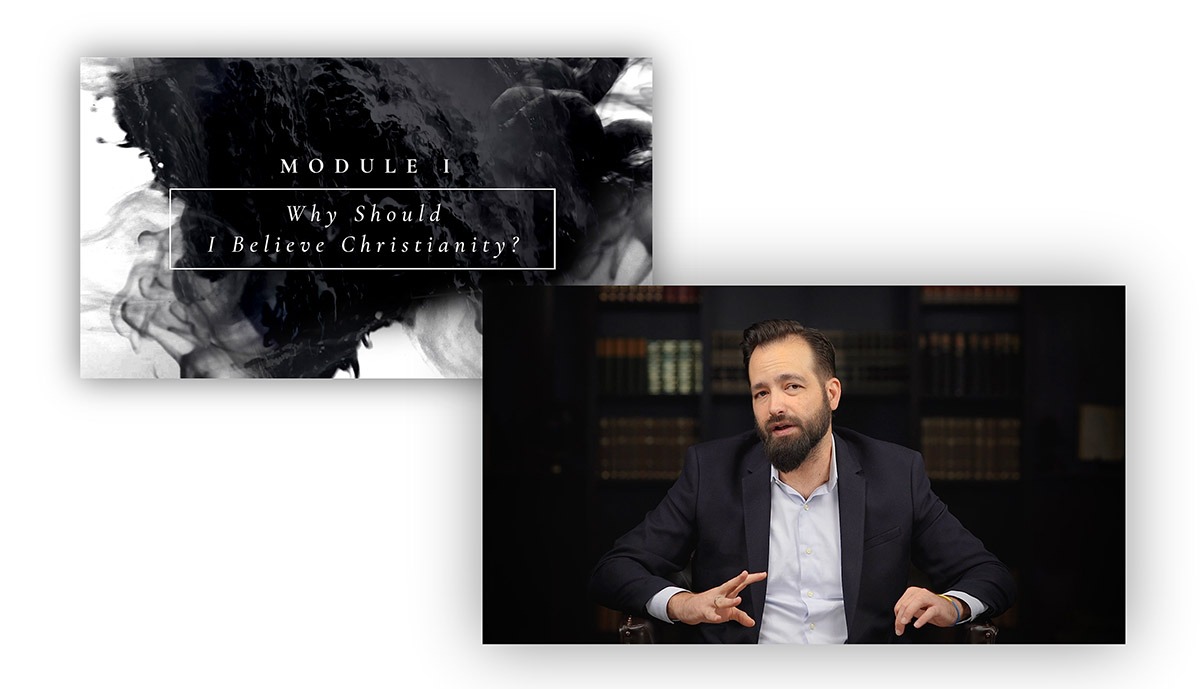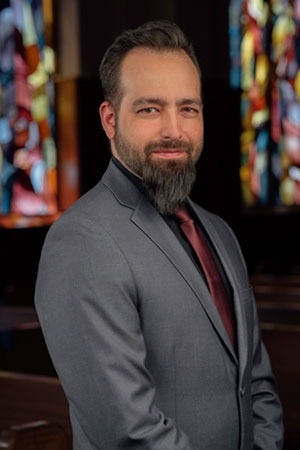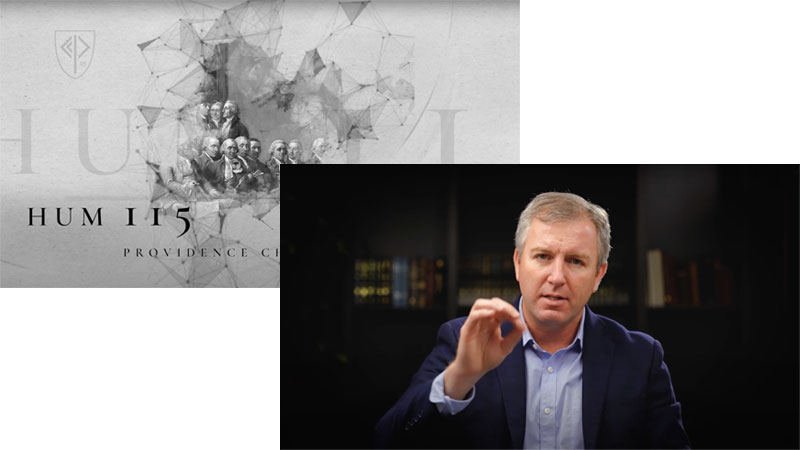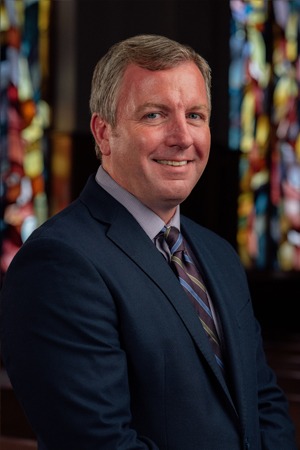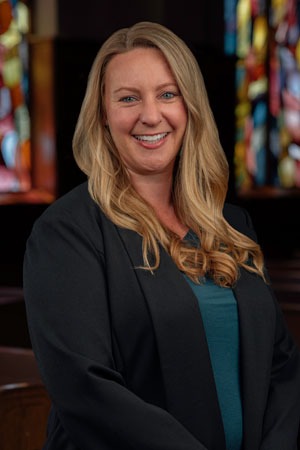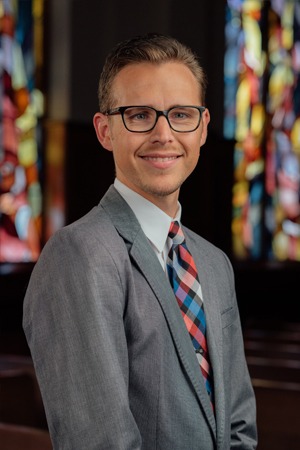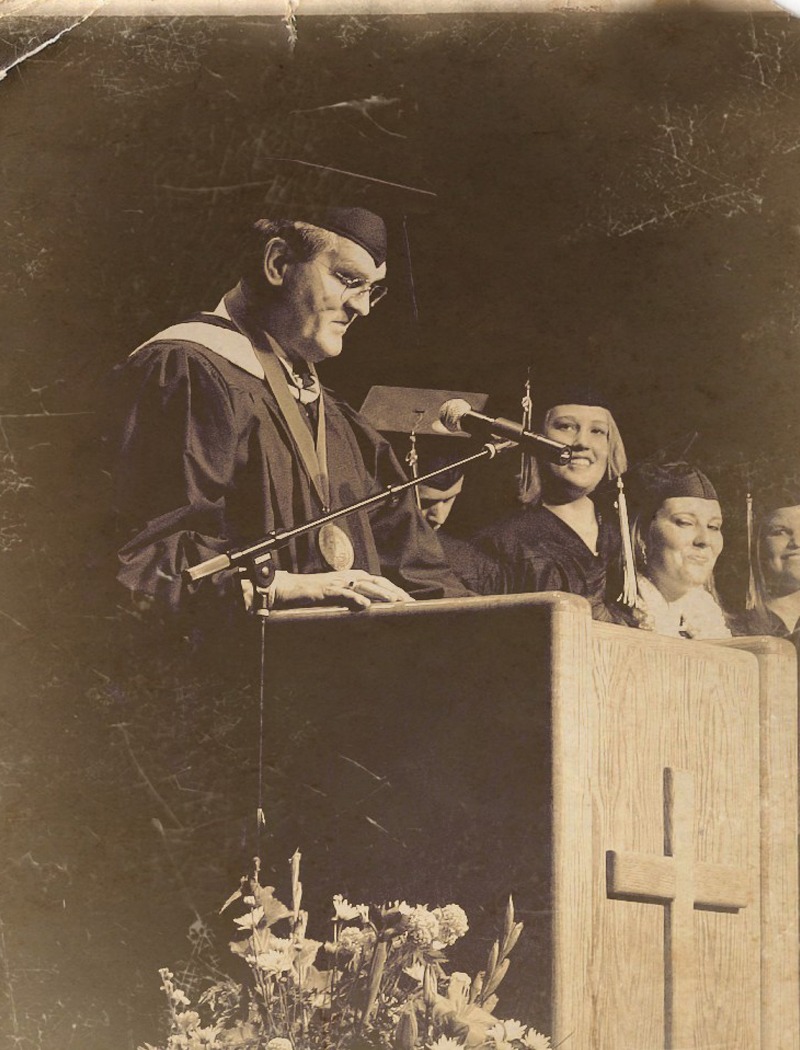The following is a transcript of President Dr. Jim Belcher’s Convocation address delivered to the Providence student body on August 22, 2018 at Westminster Presbyterian Church in Pasadena, California.
 Sea Beggars! Welcome to the start of the 2018-19 academic year.
Sea Beggars! Welcome to the start of the 2018-19 academic year.
In the 1940 movie, The Philadelphia Story, Tracy (played by Audrey Hepburn) is unable to recall what happened between her and Mike (Jimmy Stewart) the night before because she had too much Champagne and fell asleep. Thinking the worst happened, that her virtue and reputation were ruined forever, she is at first relieved to learn that Mike had carried her to her bed and departed. But then she asks, “Was I so unattractive, so distant, so forbidding, or something?” Mike replies absolutely NOT. But “you were also a little worse or better for the wear, and there are rules for that.”
According to Charles Murray, in his bestselling book Losing Ground, Mike was observing the Code. The Code specified a specific behavior that was taught to every American boy, that true manliness “is in harmony with gentleness, kindness and self-denial.”
But this Code of behavior, or virtue, or character is almost completely gone in America, says Murray. What is now preached in America by our cultural and political elite is a self-expressive freedom that says you have the liberty to do whatever you want if it makes you happy, particularly in the area of sexuality. All authority of God, the church, the family, and tradition are rejected. There is no Code —now, only the individual can decide what is right and wrong, and the guide is psychological or therapeutic—whatever helps you cope or get through the day is OK.
According to Murray, this has led to a “Schism in the Soul” a phrase he takes from the historian Arnold Toynbee’s A Study in History. Toynbee said that countries collapse when this Code collapses, and when the cultural elite turn their back on moral and ethical living and instead actively support and celebrate deviant behavior.
 That is where we are now. Our hollow elite, as Murray calls them, no longer promote the Code, meaning an ethical way to live that supports honesty, industriousness, marriage, and a religious way of life. Rather, they attack all of these and celebrate deviancy. This schism in the soul erodes the moral foundation of life that is so important, not only to human flourishing and the glory of God but also to our democratic republic that depends on individual virtue.
That is where we are now. Our hollow elite, as Murray calls them, no longer promote the Code, meaning an ethical way to live that supports honesty, industriousness, marriage, and a religious way of life. Rather, they attack all of these and celebrate deviancy. This schism in the soul erodes the moral foundation of life that is so important, not only to human flourishing and the glory of God but also to our democratic republic that depends on individual virtue.
And as I have been sharing with the first year students, and as our professors will spell out in more detail over the course of your education here at Providence, our social and cultural and political life will not be renewed until we return to the older version of freedom, which is freedom within virtue. This is the view that freedom is not freedom from authority and God and family and tradition, but that true freedom comes when we learn self-control, when we learn to govern our own sinful impulses, when we internalize the Code. Only then can we freely choose the good, the beautiful, and the true and flourish as human beings and society. This is what the late Russel Kirk meant when he said that ordered souls lead to ordered society, because without ordered souls, we have chaos.
And our founders knew and taught that this kind of freedom, this kind of virtue. This kind of code, what Alexis de Tocqueville called the habits of the heart, is best taught and learned in Christianity, in religious families and associations.
That means that we, at Providence, as one of these associations, have a unique role to play in recovering this Code, these habits of the heart. We have the secret to true freedom—it comes in Christ and the gospel of salvation. We have the secret to shaping people—through the Scriptures, the liberal arts, and community life—that helps order the souls of individuals. And by ordering the souls of individuals, we are modeling to the world what this code looks like, what true freedom and flourishing are.
But not only are we modeling it, but we are preparing you, our students, to take your ordered souls, who have internalized this Code, into our society, to replace the hollow elite who now govern us and to build strong families, healthy and vibrant organizations and businesses, create culture that trumpets truth beauty and goodness, and lead our political structures in a way that restores democracy and the habits of the heart.
But how will we do this? First by modeling it and creating a community that helps order the souls of individuals; one that teaches the Code.
But how can we do this when we ourselves are sinful individuals, so often tempted and succumbing in our own lives to the hollow culture around us and inside us? How can we do this when we ourselves are a product of the culture’s view of expressive freedom that hates codes, rules of behavior, any outside authority? And yet if we don’t find a way, I fear that our republic is doomed.
The only way we can begin this project of cultural and spiritual renewal is first by having our eyes opened, by repenting of our anti authority in our hearts and submitting to our Creator. This repentance is the first step in seeing our need for a Savior, someone who can give us a new heart. Because its only when we have a new heart, one that is NOT hollow but filled with the love and grace of Christ, that we will have a new desire to live gratefully to our Creator. Out of gratitude that God rescued us from our self-centeredness, we will want to live for him—we will want to obey him, not because we have to obey him, but because we know it is the only way to flourishing, the only way to an ordered soul, the only way to true freedom.
As we come together as Christians, our hearts renewed, in part, by the love and healing of Christ’s grace, we will willing submit to guidelines, to a code, a covenant, that will continue to shape us and our life together.
The idea of covenants, so central to our reformed understanding of the Scriptures, have been at the center of our relationship with God since the start of time. Over the centuries, this idea of covenant made its way in to covenants between Christians both in the church and in the society.
From the medieval Magna Carter to the Mayflower Compact, to the 1641 Body of Liberties in Massachusetts Bay Colony to the U.S. Constitution, this idea of covenants has shaped our public life together. We are a people held together by Godly covenants that protect individual liberty and support communal benevolence.
With the Providence Promise, we join a long, august tradition of writing covenants for individual and communal flourishing.
As you sit now, gaze over at the Providence Promise: It is this covenant, this code, rooted in the Scriptures, and spelled out in our handbook, which is now summarized in our new Providence Promise.
If you look at the five promises, they make clear that renewal starts with right worship—getting our hearts and minds right. The transforming of the mind as Paul says.
But then look at the other four—live dutifully, love thy neighbor, academic integrity, and honoring providence—
In each of these we see that once a person and community has right worship—that is, we present our entire bodies as living sacrifices to God as our spiritual worship—we live differently—we live ethically and morally, we live for others, we exhibit character and virtue, we support the community and we learn self-control.
As you enter this experiment in community, we have an amazing opportunity to heal the schism in our own souls, which will be part of our spiritual worship to God, but it will begin the process of ordering our community and then our republic.
So first years, when you come forward this evening, this is not a hollow tradition; this is an act of covenant or Code renewal. It is one of the most significant things you can do. When you sign this important document, you are joining the names of the rest of the community, and you are participating in something magnificent, beautiful, and God glorying. May you embrace this moment!
Christo Omnia Nova!
Amen
Dr. Jim Belcher
President
